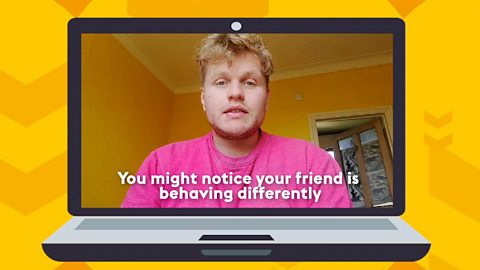Article summary
Have your students ever come across online challenges on social media? There are lots which are just harmless fun but some feature fake, often scary videos or games that challenge you to do something that may be harmful to you or others.
These are internet hoaxes, which means they are not real, but are made to grab attention so that more people click on them.
This article gives tips and advice for students if they come across internet hoaxes.

The spreading of online 'challenges'
When people share links to online challenges and talk about them a lot online, they can become viral ÔÇÿhitsÔÇÖ and it can seem like people you know are really taking part.
This is probably not the case, but if you are worried about a friend you should tell an adult.
Many challenges have been exposed as fake accounts and false stories in the past, even those with ÔÇÿorigin storiesÔÇÖ where the history of how the game began is told in great detail - and apparent cases of people who have tried out the challenges are often untrue.
Lies are often created about the challenges to make them seem more exciting and dangerous, but that doesnÔÇÖt stop them resurfacing from time to time.
Being aware of this kind of online behaviour can protect you and your friends.
If you come across a challenge that looks like it will cause harm:
- Never attempt the challenges. Even if you are tempted to try them to prove that they are fake, please don't, because you may hurt yourself
- DonÔÇÖt share the challenge. You could really upset a friend by passing it along, even if you are saying itÔÇÖs fake or silly.
- Use your common sense. Simply being aware of where these internet trends come from, and questioning how likely it is that they are real will help you remember the videos or accounts are just made to scare you
- Tell an adult. Show them what youÔÇÖve seen and explain how it made you feel.
- Block them. Block and report accounts of trolls who post upsetting things or try to friend you and send direct messagesIgnore it and move on. DonÔÇÖt go down a black hole of trying to research and make sense of something that is only designed to upset and confuse you.
Expert advice from Ghislaine Bombusa, Head of Digital Internet Matters
"We know that online challenges can be really tempting to take part in, especially if it's something that some of your friends seem to be doing or encouraging you to do.
However, it's really important to think about your safety both mental and physical.
Consider asking yourself why you are keen to take part and whether it's really worth taking the risk that you might be harmed.
We would always encourage you to talk to a trusted adult for advice to stay safe."
More on: Health wellbeing and lifestyle
Feeling the need for a digital detox? quiz
A quiz that asks questions and helps people recognise when they need a break from screen time

How to tell if your friend needs help. video
Ollie Glick from Children and Young PeopleÔÇÖs Mental Health CoalitionÔÇÖs gives his advice on what to do if you think your friend needs some help and support.

HereÔÇÖs why you shouldnÔÇÖt look up symptoms online video
This animation follows Ainslie as he anxiously explains to his brother that he has got a rare and serious condition.
